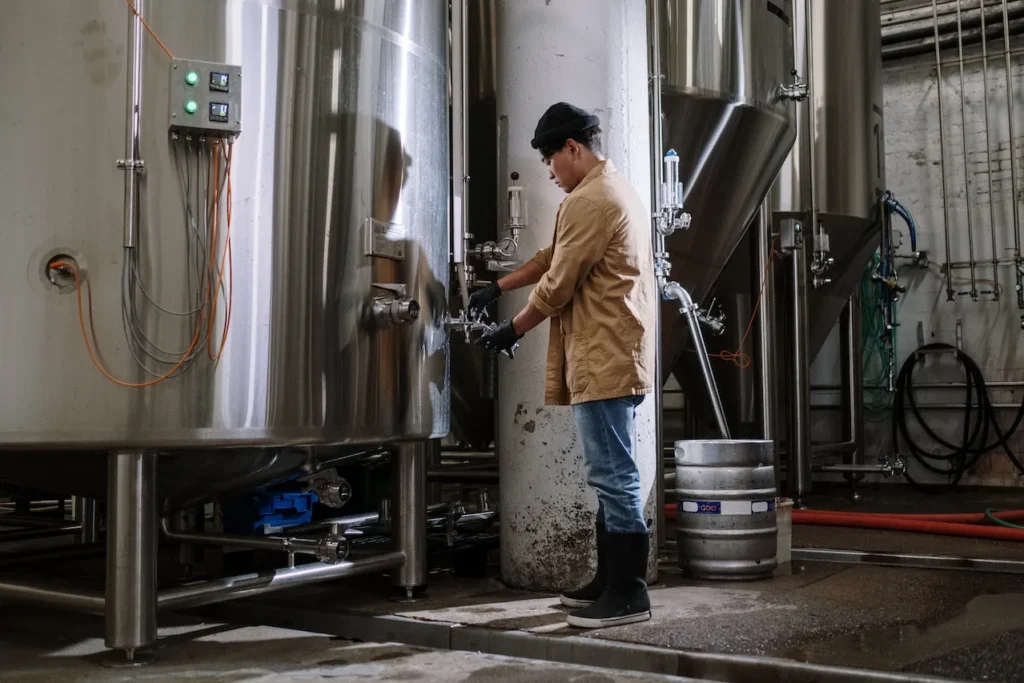Are you concerned about the impact of traditional fossil fuels on the environment? Do you want to know more about the sustainable alternatives to fossil fuels? If so, you’re in luck! Carbon neutral biofuels are on the rise as a sustainable alternative to traditional fossil fuels.
They are produced from renewable sources such as agricultural waste, algae, and even household waste. In this blog post, we’ll take a closer look at the benefits of using biofuels, how they are produced, and how they compare to traditional fossil fuels.

What are Carbon Neutral Biofuels?
Carbon neutral biofuels are a sustainable alternative to traditional fossil fuels. Unlike traditional fossil fuels, which are derived from non-renewable sources and release harmful greenhouse gasses into the atmosphere, biofuels are produced from renewable sources such as agricultural waste, algae, and even household waste.
The term “carbon neutral” refers to the fact that the amount of carbon dioxide released during the production and use of biofuels is equal to the amount of carbon dioxide absorbed during the growth and production of the feedstock used to make the biofuels. This means that biofuels have a much lower carbon footprint than traditional fossil fuels.
The process of producing biofuels involves several steps. First, the feedstock is collected and transported to a processing facility. The feedstock is then converted into a usable fuel through a process called “conversion.” This can involve various methods such as fermentation, pyrolysis, and gasification. Finally, the biofuel is refined and blended with traditional fossil fuels to create a usable fuel product.
The feedstock used to produce biofuels can come from a variety of sources. Agricultural waste, such as corn stalks and wheat straw, can be used to produce biofuels. Algae, which can be grown in ponds or tanks, is another source of biofuels. Even household waste, such as food scraps and yard waste, can be used to produce biofuels.
Benefits of Carbon Neutral Biofuels
There are several benefits to using carbon neutral biofuels as a sustainable alternative to traditional fossil fuels. Let’s take a closer look at some of the key benefits:
- Environmental Benefits: One of the primary benefits of using biofuels is the reduction in greenhouse gas emissions. Biofuels produce significantly less carbon dioxide and other harmful pollutants than traditional fossil fuels, which can help to reduce the impact of climate change. In addition, biofuels can help to improve air quality by reducing the amount of harmful particulate matter released into the atmosphere.
- Economic Benefits: In addition to the environmental benefits, there are also several economic benefits to using biofuels. Biofuels can help to create new jobs in the agriculture and energy sectors, as well as in research and development. In addition, biofuels can help to reduce our dependence on foreign oil, which can help to stabilize fuel prices and improve energy security.
- Energy Security: Biofuels can also help to improve energy security by reducing our dependence on foreign oil. By producing fuel from renewable sources within our own borders, we can reduce our reliance on oil imports and increase our energy independence.
- Sustainability: Finally, biofuels offer a more sustainable alternative to traditional fossil fuels. By using renewable sources to produce fuel, we can reduce our impact on the environment and preserve non-renewable resources for future generations.
How Carbon Neutral Biofuels Compare to Traditional Fossil Fuels
When it comes to energy production, there are both benefits and drawbacks to using carbon neutral biofuels as a sustainable alternative to traditional fossil fuels. Let’s take a closer look at how biofuels compare to traditional fossil fuels in terms of environmental impact, efficiency, and usage.
- Environmental Impact: Biofuels have a much lower environmental impact than traditional fossil fuels. Biofuels produce significantly less carbon dioxide and other harmful pollutants than traditional fossil fuels, which can help to reduce the impact of climate change. In addition, biofuels can help to improve air quality by reducing the amount of harmful particulate matter released into the atmosphere.
- Efficiency: The efficiency of biofuels compared to traditional fossil fuels can vary depending on the type of biofuel and the method of production. In general, biofuels tend to have lower energy density than traditional fossil fuels, which means that more fuel is needed to produce the same amount of energy. However, advances in biofuel production technology are helping to improve the efficiency of biofuels and make them more competitive with traditional fossil fuels.
- Usage: Biofuels can be used in a variety of applications, including transportation, heating, and electricity generation. However, there are some limitations to where biofuels can be used. For example, some types of biofuels may not be suitable for use in cold climates or in high-performance vehicles. In addition, the availability of feedstock for biofuel production can be limited in some regions.
Are Carbon Neutral Biofuels Really Carbon Neutral?
While carbon neutral biofuels are often touted as a sustainable alternative to traditional fossil fuels, there is some debate about whether or not they are truly carbon neutral. Some critics argue that the production and transportation of biofuels still generate greenhouse gas emissions, which can offset the benefits of using renewable feedstocks.
However, proponents of carbon neutral biofuels argue that while there may be some emissions associated with the production and transportation of biofuels, these emissions are significantly lower than those associated with traditional fossil fuels. In addition, the carbon dioxide released during the production and use of biofuels is offset by the carbon dioxide absorbed during the growth and production of the feedstock used to make the biofuels.
It is important to note that the carbon neutrality of biofuels can vary depending on the type of feedstock used, the method of production, and the transportation methods used to transport the biofuels. For example, biofuels produced from feedstocks that require significant amounts of energy to grow and harvest may have a higher carbon footprint than biofuels produced from more sustainable feedstocks.
The Future of Carbon Neutral Biofuels
Carbon neutral biofuels have the potential to become a major player in the energy industry in the coming years. As we continue to explore sustainable alternatives to traditional fossil fuels, biofuels are likely to play an increasingly important role in our energy mix. Let’s take a closer look at the potential for carbon neutral biofuels and the challenges that must be overcome for biofuels to become a more widely used energy source.
- Potential for Carbon Neutral Biofuels: The potential for carbon neutral biofuels is significant. Biofuels can be produced from a wide range of feedstocks, including agricultural waste, algae, and even household waste. As technology continues to improve, the efficiency of biofuel production is likely to increase, making biofuels more competitive with traditional fossil fuels. In addition, the environmental benefits of using biofuels are clear, which could help to drive demand for biofuels in the coming years.
- Challenges to Overcome: While the potential for carbon neutral biofuels is significant, there are also several challenges that must be overcome for biofuels to become a more widely used energy source. One of the biggest challenges is the cost of producing biofuels. While the cost of producing biofuels is decreasing, it is still more expensive than producing traditional fossil fuels. In addition, the availability of feedstock for biofuel production can be limited in some regions. Finally, there are technical challenges to overcome in terms of improving the efficiency of biofuel production and ensuring that biofuels can be used in a wide range of applications.




